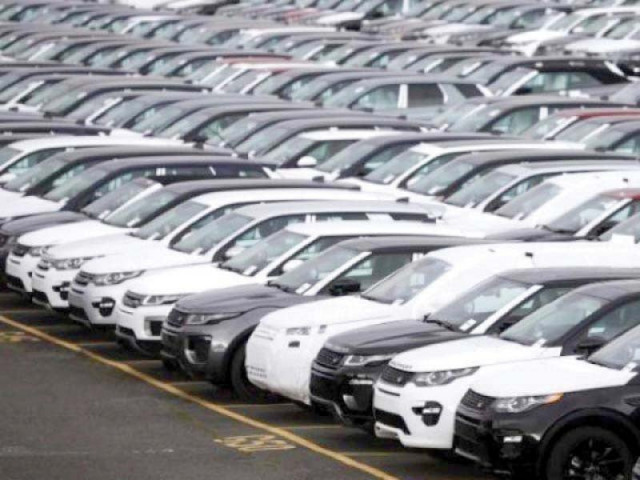Customers demand fair automobile prices
Urge carmakers to reduce prices as rupee strengthens against greenback

As the rupee gains value against the greenback, customers argue that auto companies should pass on these savings to consumers by lowering prices.
Customers urged the three big companies in the automobile sectors to reduce their vehicle prices to a substantial position as the rupee appreciated against the dollar from Rs277 to Rs261.
Mubashir Mahmood, a customer based in Karachi interested in purchasing a Toyota Corolla Altis Grande, expressed concern over the pricing practices of auto companies in response to fluctuation in the US dollar. “When the dollar rises, auto companies tend to raise their prices too. They should adopt the same logic and decrease prices when the dollar loses value,” he said.
This sentiment echoes the frustration of many consumers in Pakistan, who are experiencing the negative impact of currency fluctuations on the pricing of goods and services, including automobiles. Pakistan Businesses Forum (PBF) Vice President Ahmad Jawad said, “Three big companies have revised prices for the third time in a month and a half in the wake of rupee deprecation in its leaflets.”
Now that the rupee has strengthened with an upward trend, Jawad urged the companies to withdraw their last two circulars regarding price hikes issued after January 12, 2023.
“Recently, original equipment makers (OEMs) jacked up car prices ranging from 12%-17% due to the recent devaluation of the rupee,” said Auto Analyst, Arsalan Hanif, adding that, “After its recent appreciation against the US dollar, however, OEMs might pass on the benefit by reducing car prices once the currency stabilises.”
“Compared to India, the price of vehicles in the country are exorbitant even if we exclude the recent hikes. The government needs to seriously review why vehicles in India are cheaper for their consumers – even with the currency conversion between INR and PKR,” claimed Jawad. According to Karachi based Auto Dealer Sabir Shaikh, “While prices increased by 40% to 45% in the last year, it is difficult to predict a decrease in car prices from auto companies until there is improvement in both the political and economic conditions of the country.”
This suggests that factors such as stability and growth in the economy, as well as effective governance are necessary for auto companies to consider reducing their prices.
In addition to political and economic factors, Auto Expert Mashood Ali Khan highlighted that “Due to a high policy rate standing at 19% and a marginal improvement of just Rs10 in the rupee value against the US dollar, the buying power of consumers is also decreasing.” Taken together, it appears that a multitude of factors need to be considered in order to make car prices more affordable for consumers in Pakistan.
“This requires a holistic approach that considers not only the actions of auto companies, but also the overall economic and political environment of the country,” explained Khan. “Interestingly cars are expensive but the real issue is that the buyers do not get the best value for their money,” said Jawad, adding that, “While the cars here may be overpriced, the real issue is that they come without international safety and quality standard features.”
“Unfortunately, the country’s automakers transfer the burden directly on to consumers instead of cutting profit perimeters in this delicate economic situation. Is this a service you have given to customers?” questioned the PBF VP.
He further suggested that the price control mechanics should lie with the government instead of the auto industry. “The industry should be asked to explain how different things including taxes, the dollar rate and local production of parts etc., influence price changes. The government should also work on methods to reduce prices,” he said.
Published in The Express Tribune, February 21st, 2023.
Like Business on Facebook, follow @TribuneBiz on Twitter to stay informed and join in the conversation.



















COMMENTS
Comments are moderated and generally will be posted if they are on-topic and not abusive.
For more information, please see our Comments FAQ